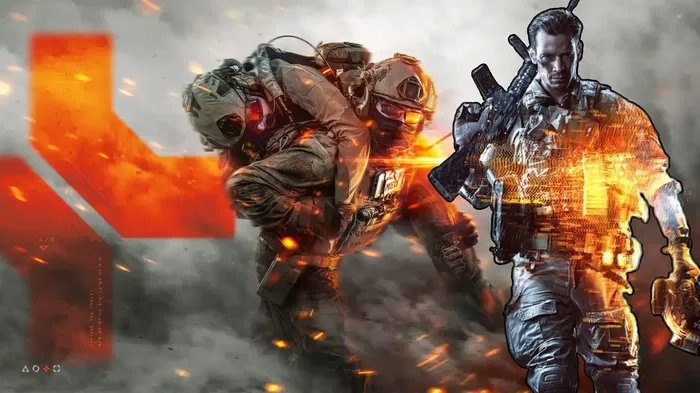Battlefield 6 is getting a surge of attention in its second open beta, with the latest maps and modes keeping players engaged. The hype has also brought back the familiar comparisons to Call of Duty.
But rather than fuel a rivalry, the people leading Battlefield now see the two franchises as different forces in the same space—each with its own strengths that can benefit players.
How Are Battlefield’s Current Bosses Tied to Call of Duty’s History?
Battlefield leaders Vince Zampella and Byron Beede both have strong Call of Duty roots, with Zampella co-creating the series at Infinity Ward before founding Respawn Entertainment, where he led work on Titanfall, Apex Legends, and Star Wars Jedi.

Beede also spent years with Call of Duty before taking on his current role as Battlefield’s General Manager. Given that history, it’s no surprise the pair were asked how they view the relationship between the two franchises.
They answer that Battlefield and Call of Duty have coexisted for decades, and they “complement each other in different ways.” Battlefield has large-scale destructible environments, a defined class system, and sandbox-style combat that set it apart from Call of Duty’s fast and structured gameplay.
Has the Battlefield–Call of Duty Rivalry Softened Over the Years?
This softer tone is a noticeable shift from the days when DICE openly traded jabs with its competitor.

In the past, Battlefield developers weren’t shy about mocking Call of Duty’s celebrity skins or flashy crossovers.
But Zampella’s approach is different, as even after a rocky departure from Activision years ago, he still sees Call of Duty as part of his legacy and stays connected with the people making it.
That shared respect has led to a more professional, less combative relationship between the two series. The goal is to build distinct experiences instead of competing to undermine one another.
Zampella himself acknowledged that every game on the market is technically a competitor, but Battlefield doesn’t need to chase Call of Duty—its identity is already distinct.
Why Does Battlefield Need to Double Down on Its Own Strengths?
The FPS landscape today is more competitive than when Battlefield and Call of Duty first emerged.

Games like Fortnite, PUBG, and even free-to-play mobile shooters are competing for the same audience. Zampella believes this makes it more important than ever to play to Battlefield’s strengths.
That means sticking with its large maps, destructible environments, and class-driven gameplay instead of chasing trends.
Battlefield 6’s developers will avoid flashy cosmetic collaborations and keep the game in a realistic military style. This choice harks back to Battlefield 3 and 4, a return that has been high on veteran players’ wish lists.
Seeing themselves as complementary gives Battlefield and Call of Duty room to grow while holding onto what defines them.
Players can choose between Battlefield’s large-scale tactical battles with destructible environments and Call of Duty’s fast-paced, intense combat.
Most shooters feel the same, but different styles give FPS fans more variety. And if both franchises stick to improving what they already do best, players stand to win no matter which they choose to play.
For more like this, stick with us here at Gfinityesports.com: the best website for gaming news.

